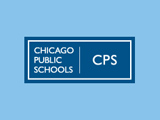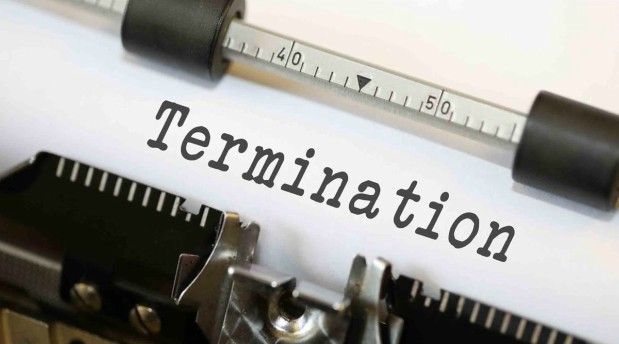Chicago Public School Dispute Still Unresolved
Post Views 0
Both sides had hoped the arbitrator’s report would lessen the ever widening chasm between CPS and its teachers unions and that it would make them rethink their demands and make them more reasonable and practicable. Rebuffing the recommendations will only lead to further acrimony and a more heated round of negotiations.
The arbitrator, Edwin Benn, 63, a Glencoe attorney, was asked to assess the situation and figure out what a fair compensation should be for Chicago Public School teachers as they begin working a longer school day next year. Benn headed a fact finding team that included representatives from both Chicago Public School and Chicago Teachers Unions.
Sources say, that the report recommends a double-digit increase in salaries, but could also mean teacher layoffs and larger class sizes. The former would not be acceptable to the CPS and the latter to the CTU.
Those in the know say that the arbitrator will recommend that teacher salaries be increased by 15 to 20 percent in the contract’s first year, especially since they are expected to work the longer day, beginning in the fall. The increase would also include hikes for experience and for pursuing graduate degrees. These were extra compensation that the Chicago Public Schools had attempted to eradicate.
The district would hardly be in a position to accept the arbitrator’s recommendations as the suggested raises would further deplete its already strapped cash reserves to close an expected $665 million deficit next school year.
Moreover, hundreds of millions of dollars in teachers’ pension payments will become due in 2014 further adding to their financial woes.
The Chicago Teachers Union was negotiating for a wage increase of almost 30 percent over a two year period. However, it seems that realization has dawned upon the unions that the seeking a pay rise and allowing for jobs to be lost and changed working conditions was too high a price to pay.
The Unions will have a difficult task to explain to the extremely drained and perturbed teachers why it was prudent to reject the offer, even though the raise was significantly higher than the 2 percent first-year raise CPS had first offered.
On Sunday, union Vice President Jesse Sharkey, said that wages were not the only concern and the union would have to consider many other areas of their members interest before deciding on the arbitrator’s recommendations.
“We’ve said to our teachers that we want fair compensation,” Sharkey said. “We’ve also said we want a better (school) day and we want to make sure class sizes don’t spike. (Our members) know that we simply don’t have a wage demand.”
Neither the Unions, nor the CPS are obliged to accept the arbitrator’s report which is nonbinding. The report due on Monday will now be given to both the parties on Wednesday. CTU leaders will meet Wednesday with the union’s House of Delegates to discuss the report.
If the report is accepted the issue will be brought to a close, but in the case of either side rejecting it, which is the most probable scenario, talks must continue for 30 days before a walkout can occur.
District spokeswoman Becky Carroll said that proposals and recommendations, whether they are arrived at by a fact-finding team or through negotiations between the aggrieved parties, must not lose sight of the our financial conditions and the future of our students, they, she said, “must first be grounded in the fiscal reality CPS faces today and the academic needs of our kids. To ignore the gravity of (the district’s) financial crisis would be irresponsible to our students and families as well as taxpayers.”
Authors of the 2011 school reform legislation that set the framework for negotiations had made it compulsory to appoint an arbitrator. They had hoped that the mediation of a neutral party could help both see reason and avoid teacher’s strikes. However, now many are questioning the merit of that decision.
“Until we see how the fact-finder has interpreted his role, I don’t think we know how helpful it will be,” said Robin Steans, executive director with Advance Illinois. “I don’t see how the system can absorb large salary increases without significant staffing cuts.”
Problems began when Mayor Rahm Emanuel, upon taking over rescinded 4 percent raises for teachers, through a school board that he had appointed. The unions found his method of working aggressive and alleged that he took decisions independently without the union’s consent.
The Mayor’s rigid stance stimulated the union, which in a show of strength; saw more than 90 percent of its members voting to authorize a strike if a contract could not be reached.
“I think it finally woke the mayor up,” said Claire Falk, a social studies teacher at Dunbar High School. “We’re getting ready for a strike. We don’t want to do it. But we’re ready if we need to.”
The CPS, when through school reform legislation raised voting teachers to 75 percent to authorize a strike, were perhaps hopeful or confident that the unions would not be able to galvanize three-quarter support and hence greatly curtail their ability to strike. A 90 percent response was unprecedented and certainly unexpected.
CTU’s Sharkey alleged that the legislation was designed to allow CPS to speak from a position of strength during contract talks.
“The reason the legislation backfired is because it produced for the district the false sense that they could dictate the terms of school next year,” Sharkey said.
Labor experts say that third-party mediation can only be successful if the fact-finder is neutral and not aligned or biased towards anybody. He should be someone that both parties trust implicitly and both parties respect the process.
But because of its long drawn out nature and that the leaders on both sides are not willing to give an inch; the dispute has taken on a different hue. Moreover, both sides have faced political pressure to stand their ground.
Zev Eigen, an assistant professor of law at Northwestern University who specializes in labor issues said, “Oftentimes in fact-finding, there is still a lot open to interpretation. That can be perilous in cases like this one where there is a lot at stake.”
CPS’ former interim schools chief, Terry Mazany, felt that even if neither side accepted the report, it could still help them resolve the issue.
“It’s my belief that both parties are very interested in arriving at a resolution so the school year can begin as planned,” said Mazany, who heads the Chicago Community Trust. “Both parties understand there’s no winner in a strike.”
Chicago Public School Dispute Still Unresolved by Harrison Barnes


 10 Steps to Properly Fire an Employee
10 Steps to Properly Fire an Employee  The New Trend of Defamation Lawsuits
The New Trend of Defamation Lawsuits  Fake FMLA Requests Can Be Overcome
Fake FMLA Requests Can Be Overcome  Cutting Full-Time Employee Hours Can Get You Sued
Cutting Full-Time Employee Hours Can Get You Sued  Home Depot Sued by Two Former Female Employees for Sexual Discrimination
Home Depot Sued by Two Former Female Employees for Sexual Discrimination  Telecommuting Doesn’t Work for All Jobs
Telecommuting Doesn’t Work for All Jobs